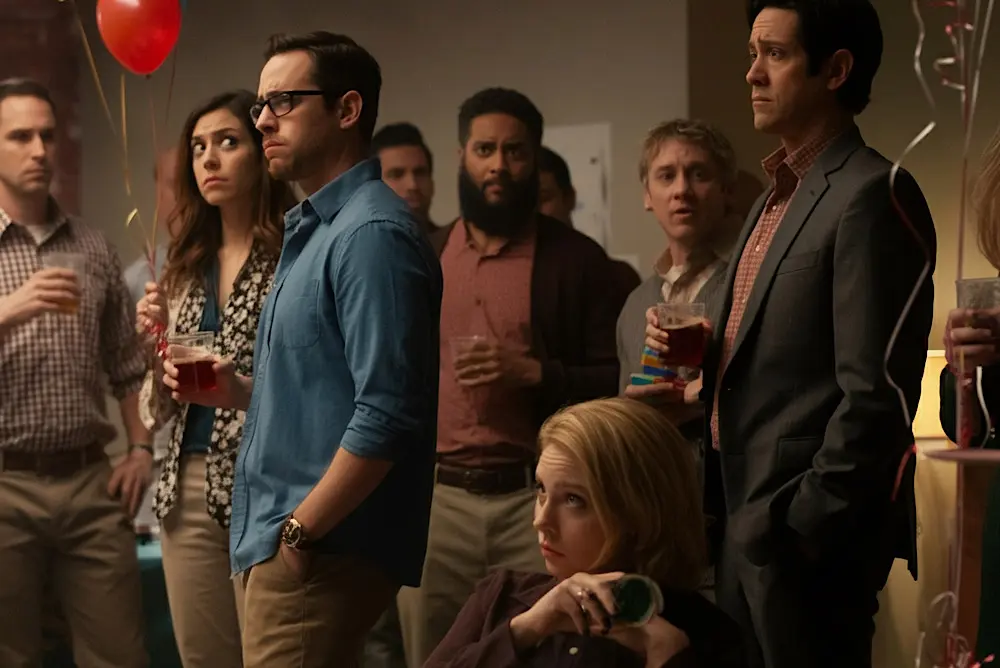They saunter into an event uninvited, laughing away their lack of name tag or the chaos they leave in their wake. They are the Go-Shows, and to them, an RSVP has about as much worth as an upgrade on a fully booked flight. If you’ve spent any time in the travel industry, you’ve seen them. Maybe you’ve even been one (we’ll keep that between us). But as harmless as it might seem, the rise of Go-Shows is becoming a serious headache for event organisers.
So why are Go-Shows becoming more common, and what’s the real cost of skipping that crucial RSVP? Let’s dive into why this trend is rubbing everyone the wrong way, and why, if you’re not on the list, you’re probably missing more than just your name tag.
What is a Go-Show?
A lot of work goes into all these amazing events we have the privilege of attending. Organisers have sorted out catering, seating, and presentations based on a neatly organised guest list. Then, out of nowhere, Go-Shows start rolling in. They didn’t RSVP, but they figure it’s fine to just rock up. What’s a few extra people, right?
Wrong.
“The odd Go-Show might not seem like a big deal, but it can get out of hand,” says Karryon Event Manager Simran Mediratta. “It throws off seating plans, catering, and even the smooth running of the event.”
Why is RSVPing such a big deal?
Sending an RSVP whether for a lunch-and-learn session or a full-blown trade show might seem like a small detail, but it can be crucial to the smooth running of any event.
“When someone RSVPs, it’s saying, ‘I value your time, and I’m confirming my presence so you can plan accordingly’,” says Mediratta.
RSVP lists help organisers tailor the experience. By skipping the RSVP, Go-Shows run the risk of missing out on some of those curated experiences or ruining said experiences for others.

Some Go-Shows assume that by turning up, they’ll either blend into the crowd or that organisers will simply shrug and let them in. Sometimes, that works. But more often than not, there’s a reason you need to RSVP in the first place.
“You have to remember, if you’re not on the list, there’s probably a reason for that,” Mediratta says. “Maybe the event is at capacity, maybe it’s invite-only, or maybe we’ve tailored the guest list to specific business interests. Go-Shows not only make things more complicated logistically, but they can also impact the quality of the event for those who did RSVP.”
It’s a point that event organisers across the industry echo: by RSVPing, you’re ensuring that you’ll fit into the event in a meaningful way. You’re not just an extra body in the room, you’re a valuable attendee who contributes to the overall vibe of the event.
Go-Shows vs No-Shows: Which is worse?
Both Go-Shows and No-Shows aren’t ideal for event organisers, but which one is actually worse? According to Mediratta, “they’re both problematic, just in different ways.”
No-Shows, the guests who RSVP but fail to attend without cancelling, can cause logistical issues, particularly when it comes to wasted resources. “When someone no-shows, it’s frustrating because we’ve planned for their presence, catering, seating, and even their place in the program,” says Mediratta. “It’s a missed opportunity, and it affects the energy of the event.”
According to Mediratta, depending on the type of event and the venue, Go-Shows can usually be accommodated. But Go-Shows come with their own set of headaches.
“With No-Shows, you’re over-prepared,” she continues. “When Go-Shows arrive, we can suddenly be under-prepared. It has the potential to disrupt the flow and often means someone else’s experience is impacted.”
In short? Both are bad news. But where No-Shows lead to surplus, Go-Shows lead to scarcity, and either way, the balance is thrown off.
Just ask
Go-Shows aren’t evil. They’re often well-meaning folks who may simply have forgotten to RSVP or genuinely want to connect with their industry peers. But there’s a better way to go about it.
“Most organisers are happy to accommodate a last-minute addition if you communicate with them ahead of time,” says Mediratta.
“But showing up without notice? It’s unprofessional.”







